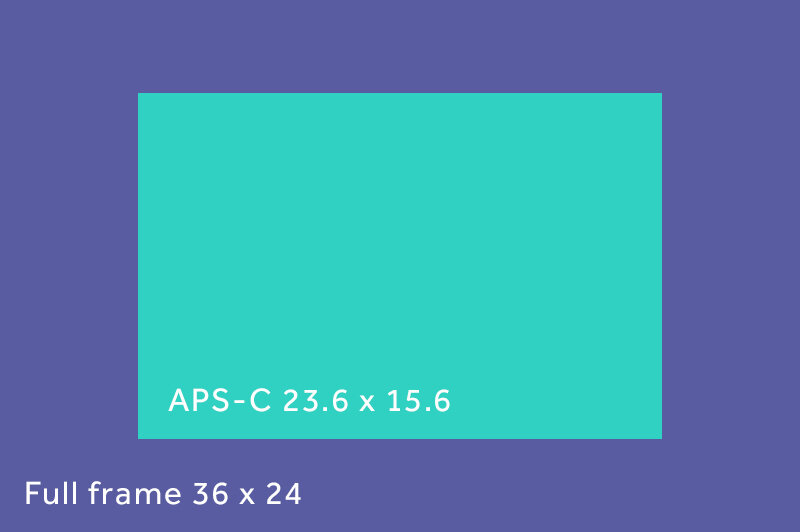How does a cropped sensor affect bokeh?
At some point someone will mock your cropped frame camera for having inferior bokeh.
I recommend you smile politely and continue to enjoy your photography; this is an argument you can never win. If someone knows what bokeh is and the exact cropped sensor sizes and thinks it means they take better photos, they are MISSING THE POINT.
Please, everyone: have fun with your camera. Pixel-peep over drinks later if you must, but don’t let it spoil your day.
Exception: if you support your family with your camera you might invest in full frame if you could genuinely see the return on your investment paying in actual increased fees rather than simply pandering to your ego. I earned a living as a commercial flower photographer using a cropped-frame Fuji XT-1. I used it because I loved the colour and the images needed very little work. I never noticed I was missing out on any bokeh. Since I’ve moved to landscape photography I use a full frame Canon because of the wide-angle issue (see below). Neither camera is necessarily better than the other. It depends on what you want to do with it.
If you’ve understood nothing in this introduction, scroll to the end of the post and join my beginner’s photography workshop. It’s online, it’s free and you can get started today.
What’s bokeh?
Arm yourself with knowledge if you must take on the fanatics. Bokeh is the aesthetic quality of the out-of-focus parts of your image. It’s what the blur looks like. It includes - but is not limited to - what the specular highlights look like. You don’t need Pinterest-worthy circles of light to see bokeh, it’s just what happens to everything outside your sharp depth-of-field.
Left: “Pinterest” bokeh - specular highlights in soft focus (image Mark Kamalov with permission)
Right: Traditional bokeh - the quality of parts of the image outside the sharp depth-of-field
What’s a full frame and what’s a cropped frame?
Your camera’s sensor is where the image is made. If you have a full-frame sensor, it is simply the same size as a single frame of old-school 35mm film, ie. 36 x 24mm. A cropped frame (eg. an APS-C) is smaller.
What difference does sensor size make?
The benefits of full frame
1. “Better” bokeh
2. Less noise
3. Higher dynamic range
The benefits of cropped sensor
1. Better video (because of quicker read speeds)
2. Smaller (and usually cheaper) cameras
3. Longer effective focal length (ie. a 200mm on a cropped sensor becomes a 300mm equivalent; you get a telephoto for less money and weight. The corollary is that it’s harder to get wider angles: a 24mm functions as full frame 38mm would.) This post from B&H has the best explanation of crop factor that I’ve found.
Sensor size and depth of field
A larger sensor permits a smaller depth of field.
Many people better than I have explained exactly why, and I won’t try to replicate the (very long) explanation. Click here for B&H’s comprehensive post on the topic.
Sensor size and bokeh
And so we come to the ultimate question: do full frame cameras have better bokeh?
First of all, the quality of the lens is going to have a big say in the quality of the out-of-focus parts of the image. That hydrangea shot of mine above was taken at f1.2 with a 50mm costing more than £1,000 on a full frame Canon.
But I think the world would agree that, all other things being equal, full frame cameras have better (ie. more aesthetically pleasing) bokeh. Many tests have been done, and if you want to review a few, click these links:
FujiLove - How much bokeh do you lose when you leave full frame?
Borrow Lenses - How sensor size affects background blur
FStoppers - Does sensor size matter?
Try it! From where you are sitting!
I will leave you with this week’s best find: Michael Bemowski’s online depth of field simulator. Not only can you see how aperture affects depth of field and bokeh, you can also change sensor size, distance to focus point, focal length AND distance between subject and background. (If you have as much fun as I did, click the “Donate” button and buy Michael a coffee.)
Free Beginner’s Workshop
You can’t learn photography in a weekend, so sit back and enjoy A Year With My Camera. You’ll be off auto in the first 6 weeks and taking photos you’re proud of in no time. The email version is completely free. Join here and get started today:




